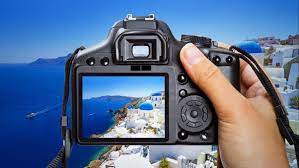
The music industry in Nigeria has been a significant contributor to the country's cultural and economic growth. Nigeria is widely recognized as the hub of African music, with a unique blend of traditional and modern sounds that have captured the attention of the world. Over the years, Nigerian music has evolved, from the traditional highlife and juju music to the fusion of different genres such as hip-hop, Afrobeat, R&B, and Afro-pop.
The Nigerian music industry has a rich history that dates back to the pre-colonial era. Music was an integral part of the various ethnic groups in Nigeria, used for communication, entertainment, and ritual purposes. The traditional music genres include highlife, juju, apala, fuji, and palm wine music.
However, the modernization of the music industry in Nigeria began in the 1960s, with the introduction of Western music through the radio and television. This led to the rise of Western-style pop music, which saw the emergence of Nigerian music icons such as Fela Kuti, King Sunny Ade, and Ebenezer Obey.
In the 1990s, Nigerian music witnessed a significant shift, with the emergence of hip-hop and R&B. Artists such as Plantashun Boiz, Remedies, and Tony Tetuila dominated the music scene. However, it was not until the early 2000s that Nigerian music gained global recognition, with the rise of artists such as D'banj, 2face Idibia, and P-Square.
The Nigerian music industry has experienced significant growth over the past decade. According to a report by PwC, the Nigerian music industry was worth $56 million in 2014 and is expected to reach $88 million by 2019. This growth can be attributed to several factors, including the increase in digital music consumption, the rise of Nigerian music streaming platforms, and the increasing popularity of Nigerian music globally.
Nigerian music has gained a lot of traction in the international scene, with artists such as Wizkid, Davido, and Burna Boy making waves in the global music industry. In 2021, Burna Boy won the Best Global Music Album award at the Grammy Awards, a significant milestone for the Nigerian music industry.
The Nigerian music industry has also seen an increase in the number of music festivals, such as the Lagos Jazz Festival, Felabration, and Afronation. These festivals have attracted international acts and provided a platform for upcoming Nigerian artists to showcase their talents.
Nigeria is a country with a rich and diverse musical culture. From traditional rhythms to modern pop hits, the Nigerian music scene is thriving and continues to grow. This makes it an exciting time for anyone looking to start a record label in Nigeria.
However, starting and running a record label can be a challenging endeavor, especially in a country like Nigeria where the music industry is still evolving. To help you navigate the process, this article will provide a step-by-step guide on how to start and run a record label in Nigeria.
Step 1: Develop a business plan
The first step in starting a record label is to develop a comprehensive business plan. This plan should outline your objectives, target market, marketing strategies, and financial projections. Your business plan should also address the legal and regulatory requirements for running a record label in Nigeria.
When creating your business plan, consider the following:
What type of music do you want to produce? What are the popular genres in Nigeria?
Who is your target audience? What age group, gender, and socio-economic status are you targeting?
Who are your competitors? What sets you apart from them?
What is your marketing strategy? How will you promote your music and artists?
What is your budget? How much will you need to start and run your label?
What are the legal requirements for running a record label in Nigeria?
Step 2: Choose a name and register your record label
Once you have developed your business plan, the next step is to choose a name for your record label. Make sure the name is unique, catchy, and easy to remember. You should also check to ensure that the name is not already in use by another record label.
After choosing a name, you should register your record label with the Corporate Affairs Commission (CAC) in Nigeria. The CAC is responsible for registering businesses and ensuring that they comply with legal requirements. You will need to provide the following information to register your record label:
Your company name and business address
The names and addresses of your directors and shareholders
A copy of your business plan
A copy of your memorandum and articles of association
Step 3: Build a team
A record label is only as good as the team behind it. You will need to assemble a team of professionals to help you run your label. This team should include:
A&R (Artists and Repertoire) executives who will be responsible for scouting new talent and developing the artists on your label.
Producers and sound engineers who will be responsible for producing and recording music.
Marketing and promotion executives who will be responsible for promoting your music and artists.
Accountants and lawyers who will help you manage the financial and legal aspects of your label.
Step 4: Scout and sign artists
The success of your record label will depend on the talent you sign. You will need to scout for new talent and sign artists to your label. The process of scouting for talent can be done in different ways, including attending live shows, reviewing demo tapes, and listening to online submissions.
Once you have identified potential artists, you should invite them to audition for your label. During the audition, you should assess their talent, stage presence, and marketability. If you are satisfied with the artist, you should offer them a recording contract.
When signing artists to your label, it is important to ensure that the terms of the contract are fair and reasonable. This includes the percentage of royalties that the artist will receive, the length of the contract, and the conditions for termination.
Step 5: Produce and record music
Once you have signed an artist to your label, the next step is to produce and record their music. This involves working with producers and sound engineers to create high-quality recordings.
Once the music is ready, the label's marketing team will be responsible for promoting the artist and their music to the target audience.
Step 6: Promote your artist
It is job of the record company to promote works of their artist.
Challenges of the Nigerian music industry
Despite the growth of the Nigerian music industry, several challenges hinder its full potential. One of the significant challenges is the issue of piracy, which has affected the music industry's revenue. Piracy has made it difficult for artists and record labels to monetize their music, leading to a decline in investment in the industry.
Another challenge is the lack of adequate infrastructure, such as recording studios, concert venues, and sound equipment. Many upcoming artists struggle to produce quality music due to the high cost of production equipment and the lack of access to recording studios.
Furthermore, the Nigerian music industry has a weak legal framework, making it difficult for artists to protect their intellectual property. The absence of a robust copyright law and the inadequate enforcement of existing laws have made it difficult for artists to earn a fair income from their music.
The future of the Nigerian music industry looks promising, with several opportunities for growth. One of the significant opportunities is the rise of digital music streaming platforms such as Spotify, Apple Music, and YouTube Music. These platforms provide a global audience for Nigerian music and offer a new revenue stream for artists and record labels.
Starting and running a record label is a very profitable business that would generate a lot of income for the promoters.























